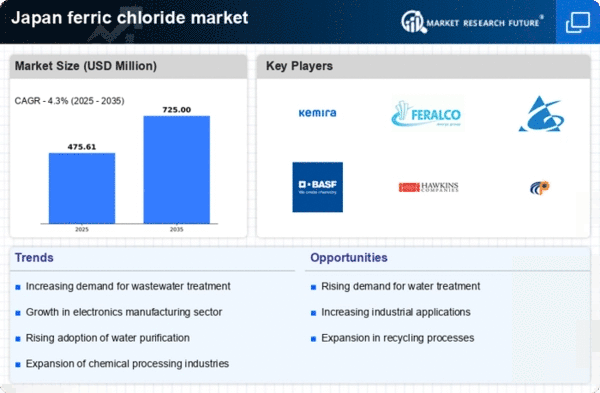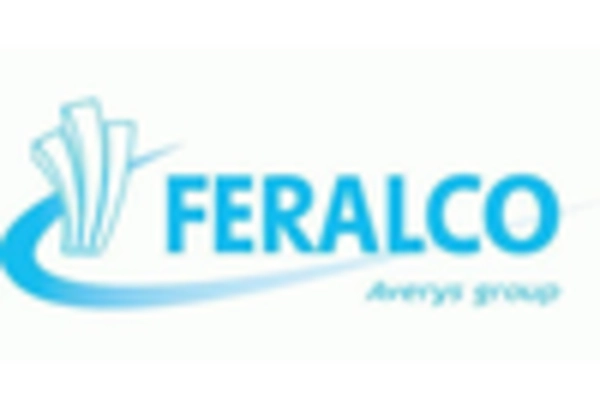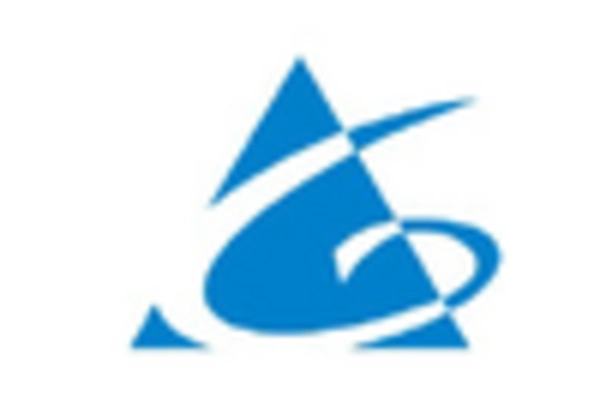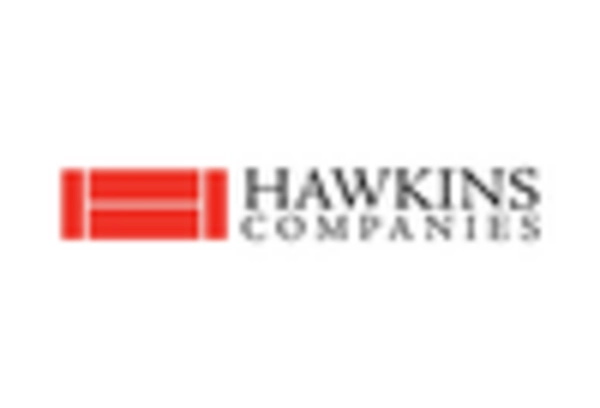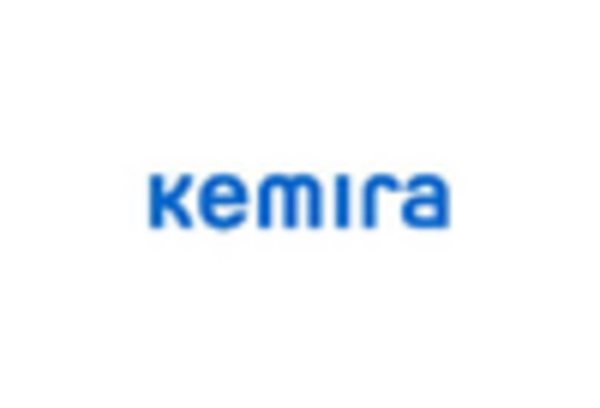The competitive dynamics within the ferric chloride market in Japan are characterized by a blend of innovation, strategic partnerships, and regional expansion. Key growth drivers include the increasing demand for water treatment solutions and the rising need for efficient industrial processes. Major players such as Kemira (FI), BASF (DE), and Nippon Chemical (JP) are actively shaping the landscape through their operational focuses. Kemira (FI) emphasizes sustainability and innovation in its product offerings, while BASF (DE) leverages its extensive research capabilities to enhance product performance. Nippon Chemical (JP) appears to be concentrating on local market needs, tailoring its solutions to meet specific regional demands, thereby fostering a competitive environment that encourages differentiation through specialized offerings.In terms of business tactics, companies are increasingly localizing manufacturing to reduce lead times and optimize supply chains. The market structure is moderately fragmented, with several players vying for market share. This fragmentation allows for a diverse range of products and services, but also intensifies competition among key players. The collective influence of these companies is significant, as they drive innovation and set industry standards, which in turn shapes customer expectations and market trends.
In October Kemira (FI) announced a strategic partnership with a leading Japanese water utility company to develop advanced ferric chloride formulations aimed at improving water treatment efficiency. This collaboration is expected to enhance Kemira's market presence in Japan while addressing the growing demand for sustainable water management solutions. The strategic importance of this partnership lies in its potential to leverage local expertise and resources, thereby facilitating a more tailored approach to the Japanese market.
In September BASF (DE) launched a new line of ferric chloride products designed specifically for industrial applications, focusing on reducing environmental impact. This initiative reflects BASF's commitment to sustainability and innovation, positioning the company as a leader in environmentally friendly solutions. The introduction of these products is likely to attract environmentally conscious customers and strengthen BASF's competitive edge in the market.
In November Nippon Chemical (JP) expanded its production capacity for ferric chloride by 20%, responding to the increasing demand from the water treatment sector. This expansion not only enhances Nippon Chemical's ability to meet local demand but also signals its commitment to maintaining a robust supply chain. The strategic importance of this move lies in its potential to solidify Nippon Chemical's position as a key player in the market, particularly in light of the growing emphasis on reliable supply chains.
As of November current trends in the ferric chloride market are increasingly defined by digitalization, sustainability, and the integration of advanced technologies. Strategic alliances among companies are shaping the competitive landscape, fostering innovation and collaboration. Looking ahead, it is anticipated that competitive differentiation will evolve, shifting from price-based competition to a focus on innovation, technology, and supply chain reliability. This transition underscores the importance of adapting to market demands and leveraging technological advancements to maintain a competitive edge.


